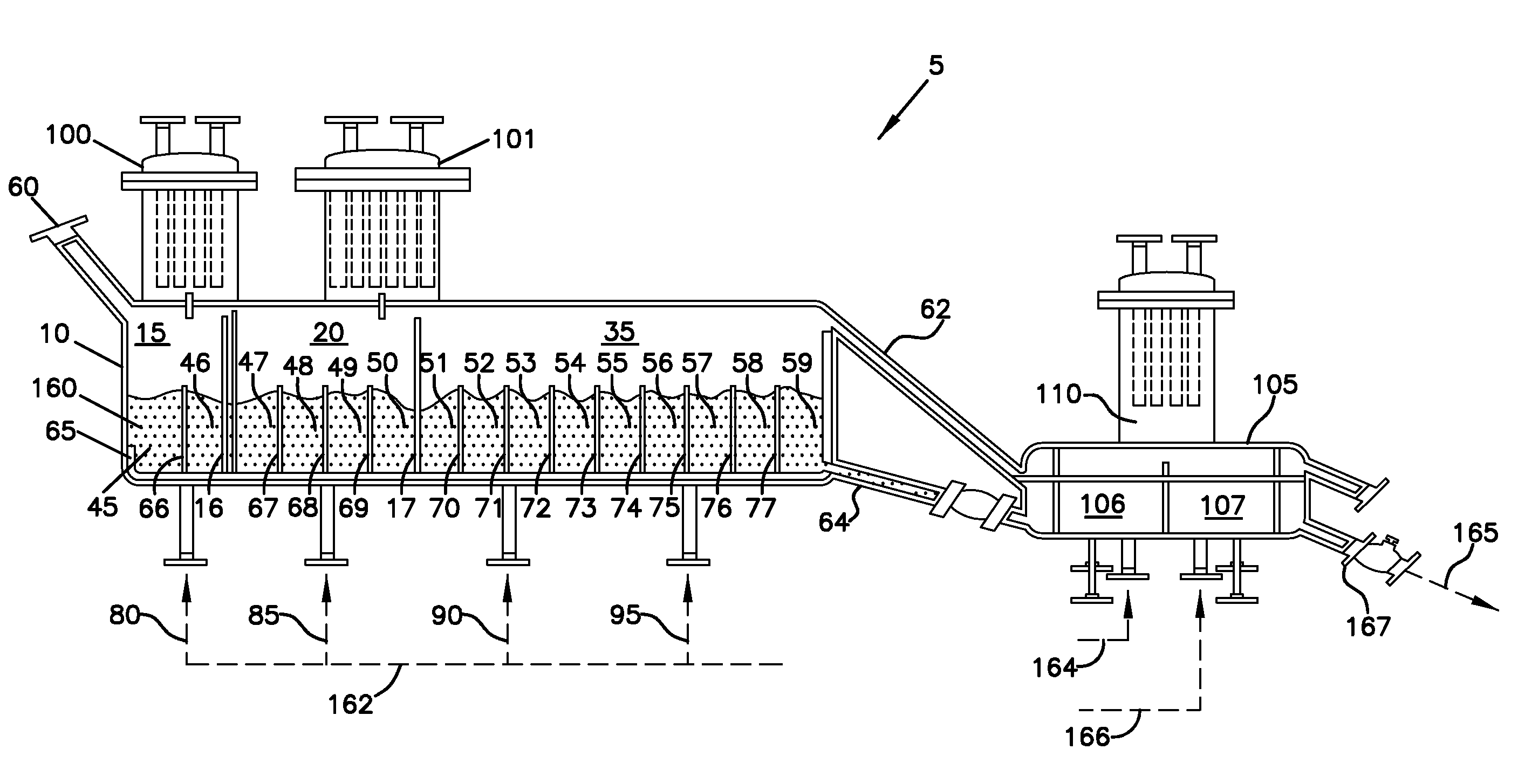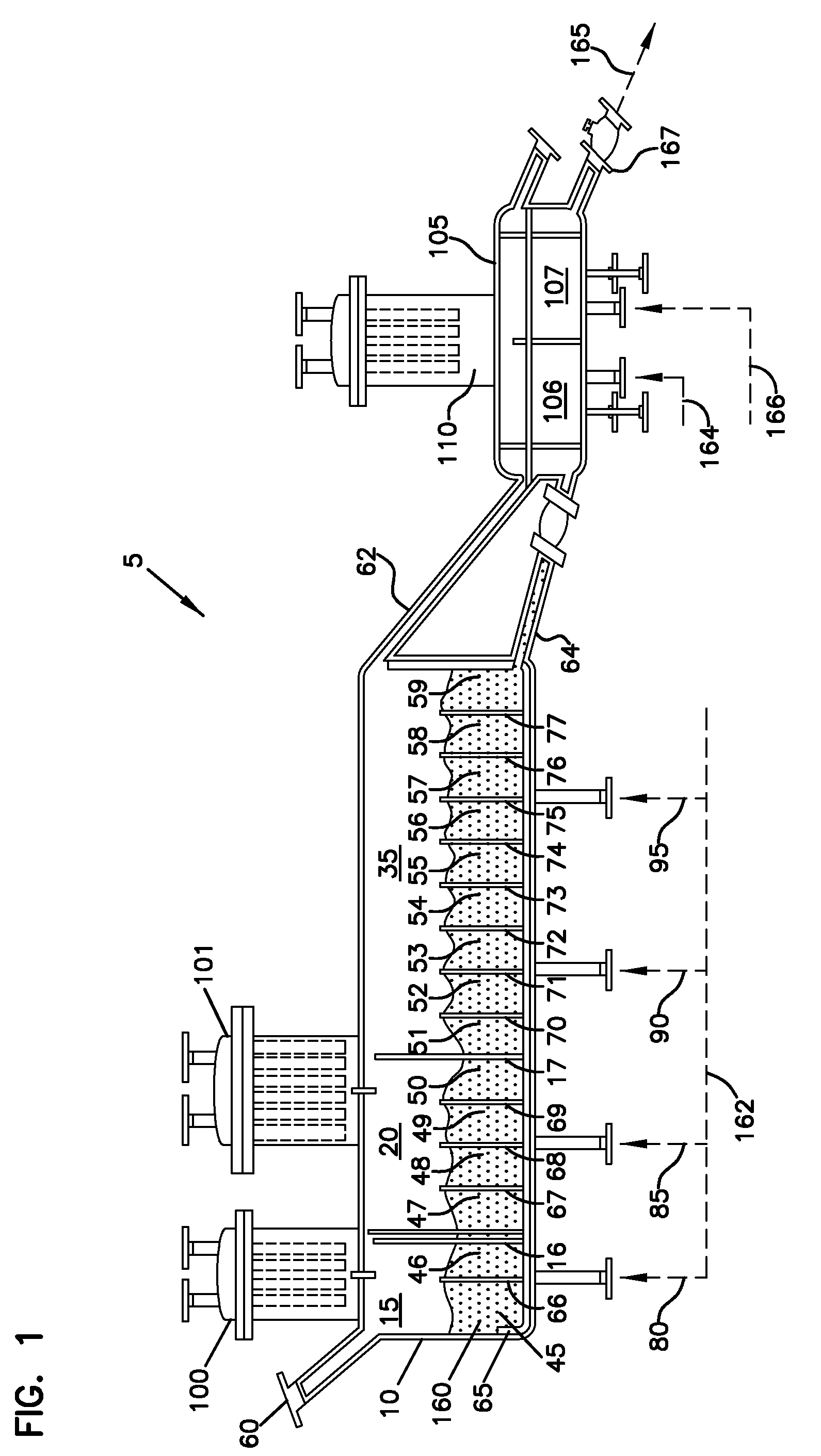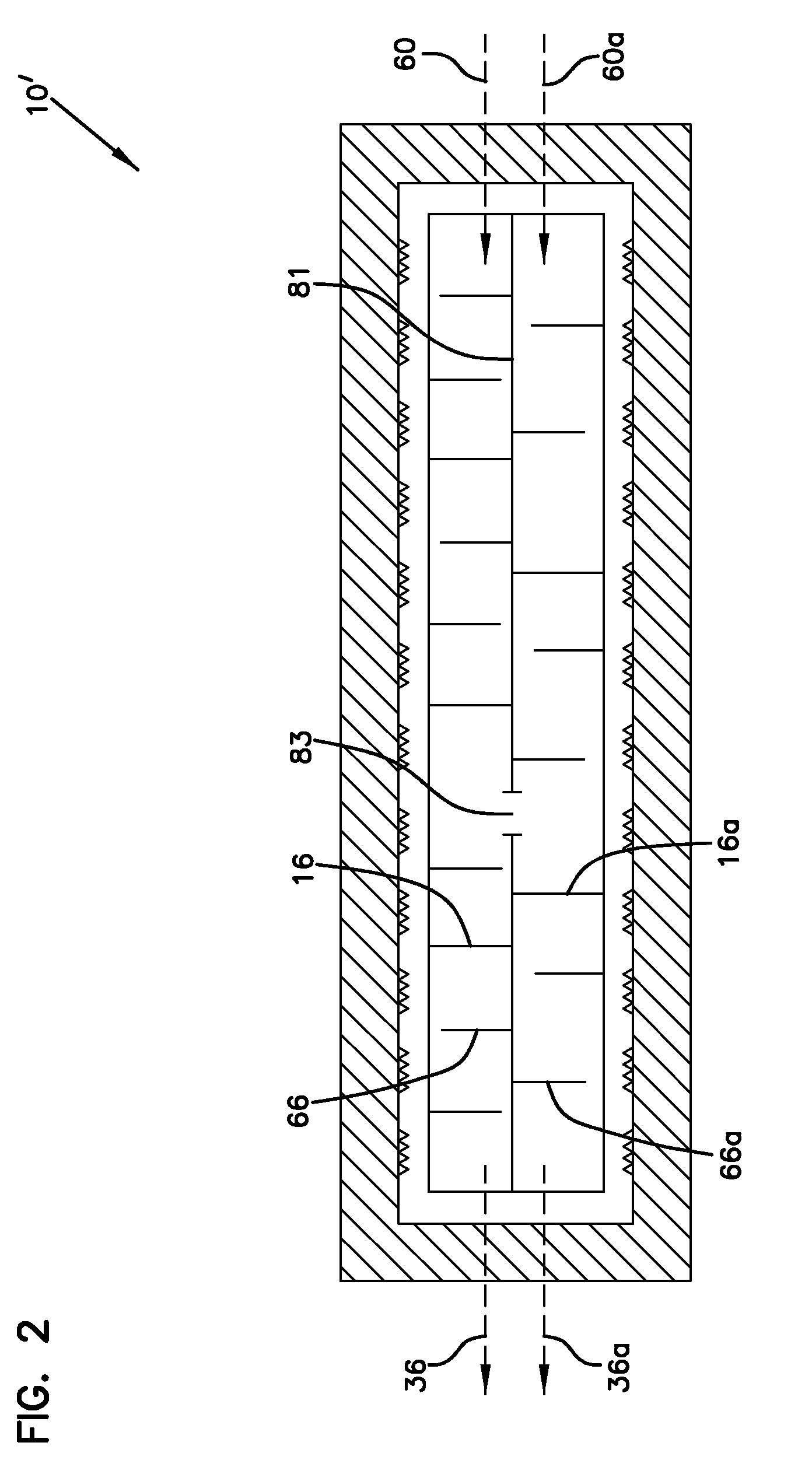Continuous preparation of calcined chemically-treated solid oxides
a chemically treated solid oxide and continuous preparation technology, applied in the direction of calcium/strontium/barium oxides/hydroxides, fluidised-bed furnaces, aluminum oxides/hydroxides, etc., can solve the problem of long time period of the process
- Summary
- Abstract
- Description
- Claims
- Application Information
AI Technical Summary
Problems solved by technology
Method used
Image
Examples
examples
[0195]The invention is further illustrated by the following examples, which are not to be construed in any way as imposing limitations to the scope of this invention. Various other aspects, embodiments, modifications, and equivalents thereof which, after reading the description herein, may suggest themselves to one of ordinary skill in the art without departing from the spirit of the present invention or the scope of the appended claims.
[0196]The sulfated alumina employed in the Examples was prepared in accordance with the following procedure. Bohemite was obtained from W.R. Grace Company under the designation “Alumina A” and having a surface area of about 300 m2 / g and a pore volume of about 1.3 mL / g. This material was obtained as a powder having an average particle size of about 100 microns. This material was impregnated to incipient wetness with an aqueous solution of ammonium sulfate to equal about 15% sulfate. This mixture was then placed in a flat pan and allowed to dry under v...
examples 1-5
Effect of Calcination Time on Polymerization Activity
[0200]At a calcination temperature of 600° C., the calcination time of sulfated alumina was varied from 15 minutes to 6 hours in Examples 1-5. Table I summarizes the catalyst activity for Examples 1-5, measured in grams of polymer produced per gram of calcined chemically-treated solid oxide per hour.
TABLE ICatalyst Activity and Calcination Time for Examples 1-5.CalcinationCatalystExampleTimeActivity115 min7020230 min76633 1 hr72984 3 hr69095 6 hr8211
examples 6-9
Effect of Calcination Time on Polymerization Activity
[0201]At a calcination temperature of 600° C., the calcination time of sulfated alumina was varied from 2 to 6 hours in Examples 6-9. Table II summarizes the catalyst activity for Examples 6-9, measured in grams of polymer produced per gram of calcined chemically-treated solid oxide per hour. Example 6 was conducted in the same manner as Examples 1-5. Examples 7-9 were calcined in the manner described above, but in a larger batch calcination vessel.
TABLE IICatalyst Activity and Calcination Time for Examples 6-9.CalcinationCatalystExampleTimeActivity66 hr888472 hr800084 hr866796 hr10000
PUM
| Property | Measurement | Unit |
|---|---|---|
| temperature | aaaaa | aaaaa |
| temperatures | aaaaa | aaaaa |
| temperature | aaaaa | aaaaa |
Abstract
Description
Claims
Application Information
 Login to View More
Login to View More - R&D
- Intellectual Property
- Life Sciences
- Materials
- Tech Scout
- Unparalleled Data Quality
- Higher Quality Content
- 60% Fewer Hallucinations
Browse by: Latest US Patents, China's latest patents, Technical Efficacy Thesaurus, Application Domain, Technology Topic, Popular Technical Reports.
© 2025 PatSnap. All rights reserved.Legal|Privacy policy|Modern Slavery Act Transparency Statement|Sitemap|About US| Contact US: help@patsnap.com



